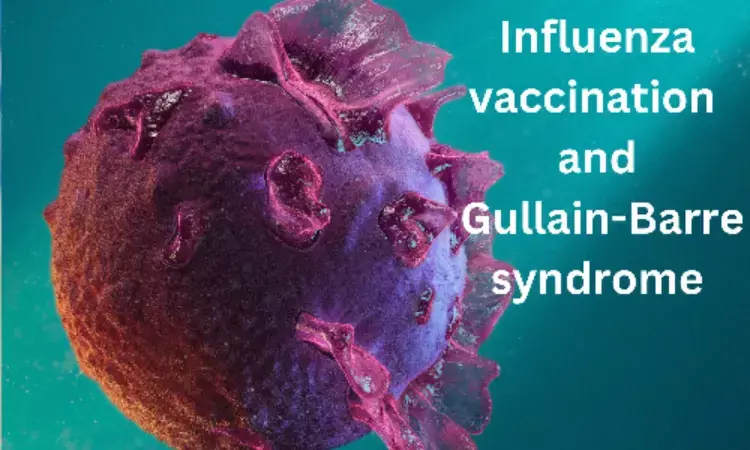- Home
- Medical news & Guidelines
- Anesthesiology
- Cardiology and CTVS
- Critical Care
- Dentistry
- Dermatology
- Diabetes and Endocrinology
- ENT
- Gastroenterology
- Medicine
- Nephrology
- Neurology
- Obstretics-Gynaecology
- Oncology
- Ophthalmology
- Orthopaedics
- Pediatrics-Neonatology
- Psychiatry
- Pulmonology
- Radiology
- Surgery
- Urology
- Laboratory Medicine
- Diet
- Nursing
- Paramedical
- Physiotherapy
- Health news
- Fact Check
- Bone Health Fact Check
- Brain Health Fact Check
- Cancer Related Fact Check
- Child Care Fact Check
- Dental and oral health fact check
- Diabetes and metabolic health fact check
- Diet and Nutrition Fact Check
- Eye and ENT Care Fact Check
- Fitness fact check
- Gut health fact check
- Heart health fact check
- Kidney health fact check
- Medical education fact check
- Men's health fact check
- Respiratory fact check
- Skin and hair care fact check
- Vaccine and Immunization fact check
- Women's health fact check
- AYUSH
- State News
- Andaman and Nicobar Islands
- Andhra Pradesh
- Arunachal Pradesh
- Assam
- Bihar
- Chandigarh
- Chattisgarh
- Dadra and Nagar Haveli
- Daman and Diu
- Delhi
- Goa
- Gujarat
- Haryana
- Himachal Pradesh
- Jammu & Kashmir
- Jharkhand
- Karnataka
- Kerala
- Ladakh
- Lakshadweep
- Madhya Pradesh
- Maharashtra
- Manipur
- Meghalaya
- Mizoram
- Nagaland
- Odisha
- Puducherry
- Punjab
- Rajasthan
- Sikkim
- Tamil Nadu
- Telangana
- Tripura
- Uttar Pradesh
- Uttrakhand
- West Bengal
- Medical Education
- Industry
Influenza vaccination increases risk of Guillain-Barre syndrome within one month

Denmark: Guillain-Barre syndrome (GBS) is a severe immune-mediated neuropathy resulting in an acute or subacute progressive bilateral symmetric weakness.
According to a study published in the European Journal of Neurology, influenza vaccination modestly increases the risk of Guillain-Barre syndrome (GBS) within one month of vaccination.
It is already known that there is an increased risk of GBS after Influenza vaccination. This is due to an elicited immune response. There is a lack of data on the exact magnitude and duration of risk. To add clarity to the data in this context, a study was conducted by Dr Lotte Sahin Levison and colleagues.
The study summary includes the following:
- This was a retrospective nationwide population-based case–control study.
- The data collection was done on all patients with first-time hospital-diagnosed GBS in Denmark (2002 and 2016).
- The incident influenza vaccination one month before admission with GBS was the primary outcome measured in the study.
- The authors identified 1295 patients with first-time hospital-diagnosed Guillain–Barré syndrome (GBS) over approximately 14 years and correlated the occurrence of GBS with exposure to influenza vaccination.
- Twenty cases comprising 1.5%, and 119 controls comprising 0.9%, received an influenza vaccination (last month).
- The value of the comorbidity-adjusted odds ratio was 1.9.
- Similar results were on stratified analyses by calendar time, gender and age.
- After influenza vaccination, there was a higher risk of GBS confined largely to 1 month.
- The population-attributable fraction of GBS was 0.4% in Denmark.
To conclude, Influenza vaccination slightly elevates the risk of GBS occurrence within one month. Compared with matched controls, individuals who received influenza vaccination had a slightly elevated risk of GBS occurrence within the first month after vaccination.
The benefit of influenza vaccines and associated morbidity and mortality should be weighed against the small absolute risk of Guillain-Barre syndrome.
Further reading:
Levison, Lotte Sahin, et al. “Guillain–Barré Syndrome Following Influenza Vaccination: A 15‐year Nationwide Population‐based Case–control Study.” European Journal of Neurology, vol. 29, no. 11, Wiley, Aug. 2022, pp. 3389–94. Crossref, https://doi.org/10.1111/ene.15516
BDS, MDS in Periodontics and Implantology
Dr. Aditi Yadav is a BDS, MDS in Periodontics and Implantology. She has a clinical experience of 5 years as a laser dental surgeon. She also has a Diploma in clinical research and pharmacovigilance and is a Certified data scientist. She is currently working as a content developer in e-health services. Dr. Yadav has a keen interest in Medical Journalism and is actively involved in Medical Research writing.
Dr Kamal Kant Kohli-MBBS, DTCD- a chest specialist with more than 30 years of practice and a flair for writing clinical articles, Dr Kamal Kant Kohli joined Medical Dialogues as a Chief Editor of Medical News. Besides writing articles, as an editor, he proofreads and verifies all the medical content published on Medical Dialogues including those coming from journals, studies,medical conferences,guidelines etc. Email: drkohli@medicaldialogues.in. Contact no. 011-43720751


